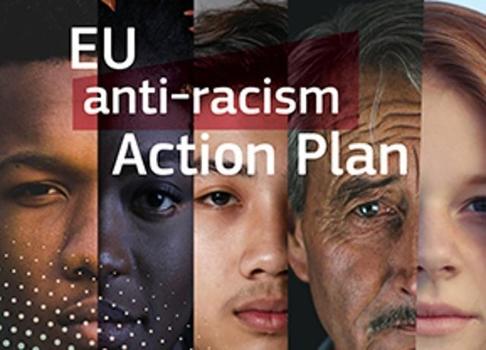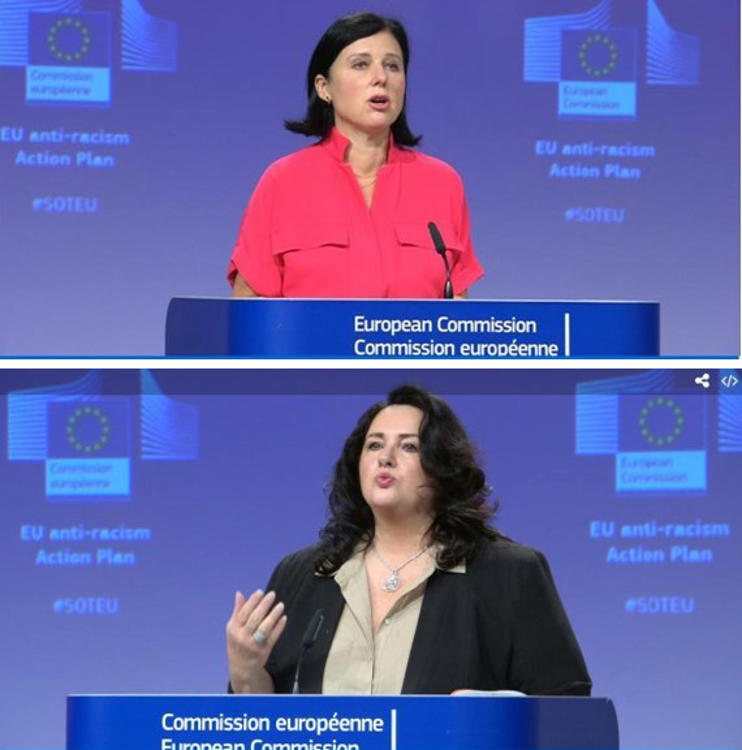25/09/2020
FSG

On 18 September, the European Union approved an Anti-racism Action Plan, which will be in operation until the year 2025. The Plan was born out of the realisation that the phenomena of racism and racial discrimination are deep-rooted and persist around the world, as demonstrated by the Black Lives Matter movement, recent cases of police brutality against black people in the USA, and the instances of discrimination which people from racial and ethnic minorities continue to suffer in Europe. This situation has been aggravated by the COVID-19 crisis, during which these minorities, including the Roma community, have sometimes been accused of spreading the virus. For this reason, the Action Plan specifically mentions anti-gypsyism as one of the most widespread forms of discrimination in Europe.
According to data from the EU’s Fundamental Rights Agency, 45% of those of North African origin, 41% of Roma people and 39% of those from sub-Saharan Africa had suffered discrimination. 11% of Jews felt discriminated against because of their Jewishness.
The EU has a legal framework in place, including the Racial Equality Directive and the Framework Decision on Combating Racism and Xenophobia. Also applicable in this area are the general principles of non-discrimination and equality, as set out in the EU’s Charter of Fundamental Rights.
However, the reality is that more measures are necessary. The EU’s Anti-racism Action Plan 2020-2025 establishes a series of measures to combat racism, using both EU Law and other means, through the collaboration of Member States. The involvement of national police forces, media organisations and civil society is necessary, along with the use of existing and future EU instruments and an examination of the composition of the Commission’s own staff body. Among other things, the Action Plan calls for:
The Plan also calls for more effective use of Structural Funds to support policies of equality and non-discrimination and support for vulnerable groups. This is an area which the FSG has been working in for 20 years with programmes funded by the European Social Fund (Acceder, and later Promociona, Calí, etc), and which it promotes with the European EURoma network.
Other measures mentioned in the Action Plan are: awareness-raising and the fight against racial and ethnic stereotyping in the media, education, culture and sport; and improving the collection of data which can be broken down by ethnic or racial origin. The Commission will also set in motion the annual designation of European capital(s) of inclusion and diversity, and will organise a Summit against racism in the spring of 2021.
At the press conference organised for the plan’s presentation, the Vice-president of the European Commission for Values and Transparency, Věra Jourová, stated that “The moment of truth has arrived. Protests have carried a clear message: we must have change now. It will not be easy, but we must do it. We will put all our efforts into this. We will not hesitate to toughen the legislation if necessary. The Commission itself will modify its staff recruitment policy in order to better reflect European society”.
Helena Dalli, Commissioner for Equality, who was also at the presentation of the Plan, added that “There is no place for racial discrimination or any kind of racism in democratic societies. We must all make efforts to ensure that our societies are anti-racist. With this Action Plan, we recognise that racism is not only perpetrated by individuals; it is also structural. We must therefore confront it at all levels of government in order to reverse the trend. This, among other reasons, is why we are examining police forces, social attitudes, stereotypes and economic concerns, and we urge Member States to implement their respective action plans against racism”.
At the Fundación Secretariado Gitano we see great value in this Action Plan, as we believe that anti-gypsyism continues to be a barrier preventing many Roma people from exercising fundamental rights such as the rights to housing, to employment, to health or to a high-quality, non-segregated education. In spite of legislative advances in recent years, we believe that the impetus given to anti-racist policies by this Plan is essential. As a result, we look forward to a firmer, more decisive commitment from Member States and the EU’s own institutions in favour of equal treatment and the elimination of racial or ethnic discrimination.
The Action Plan in English can be consulted at:

Vera Jourová y Helena Dalli